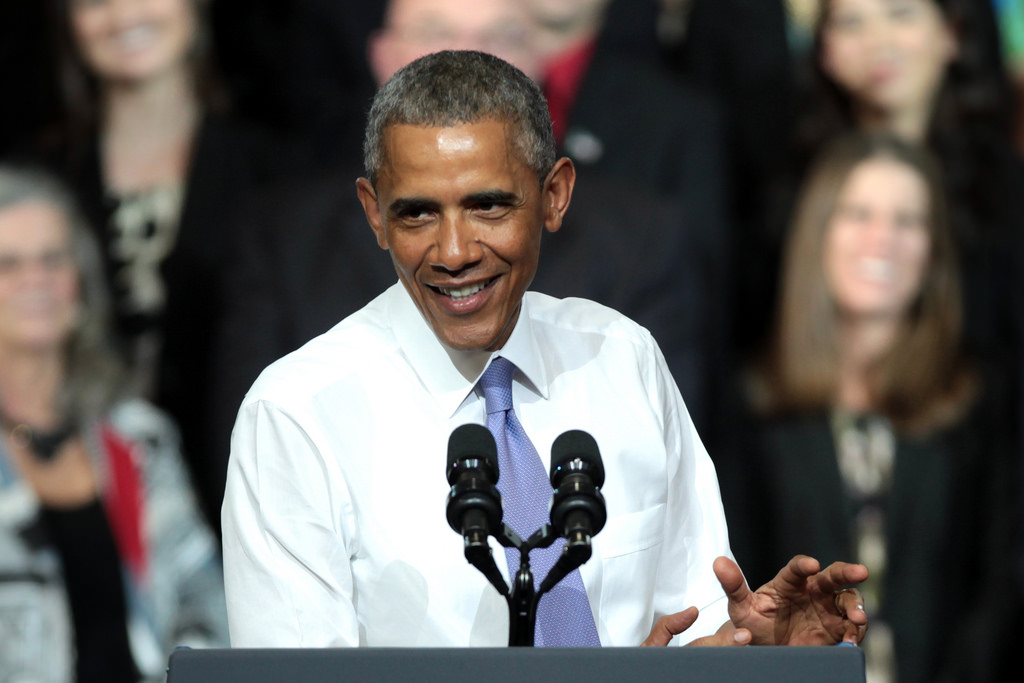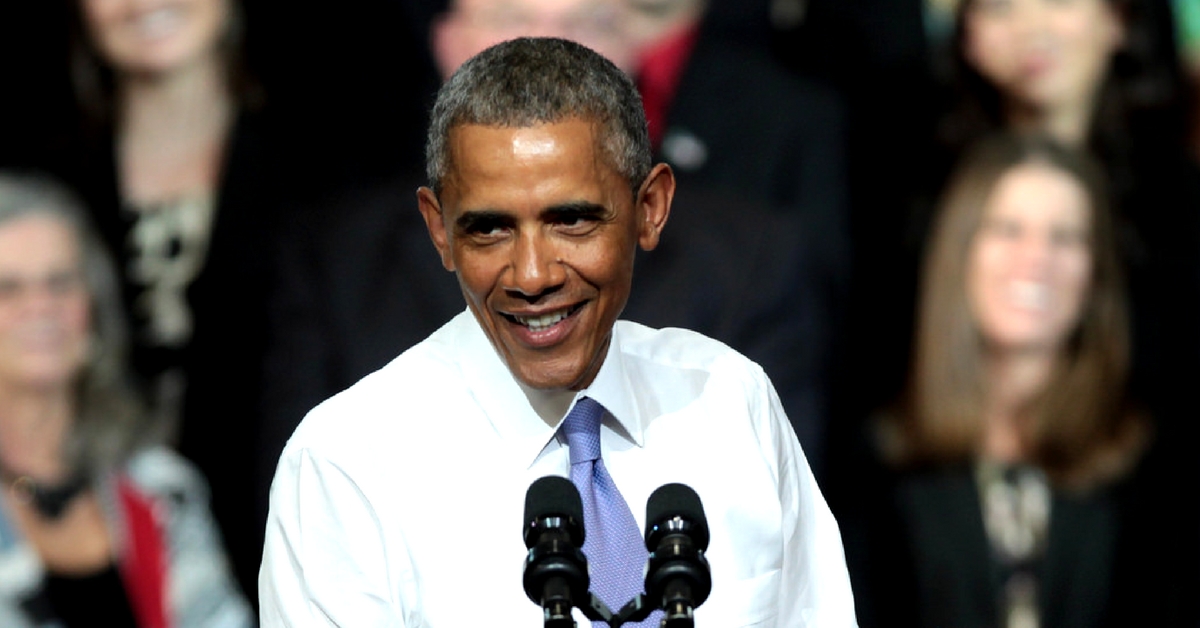Former United States President Barack Obama’s much-feted visit to India threw up a couple of memorable moments. The real highlight, though, was his eloquent response to a question posed by transgender activist Akkai Padmashali.
At a gathering in Delhi, Padmashali spoke of her struggles as a transgender woman. “I’m a criminal before Section 377, which criminalizes us because we are lesbian, gay, bisexual,” Padmashali said. “How do I raise my voice against this (injustice)?”
Obama’s response to her queries brought out the essence of how a democracy can work for marginalized minorities. Without getting into the specifics of legislation or Article 377 (of the Indian Penal Code), Obama said it begins with finding your voice, articulating your experiences, and telling your story.

“Finding that voice and being able to tell a story so that the perception that somehow you are different is broken down. People start recognizing their own experiences in you. They see your humanity,” he said. This is what Padmashali did when she spoke of her struggle.
This is also what the mother of a Mumbai-based gay rights activist did in a controversial matrimonial advertisement in 2015. “Seeking 25-40, well placed, animal loving, vegetarian groom for my son 36, 5 11’ who works with an NGO caste no bar (though Iyer preferred),” the ad read. Although the caste reference was put in “jest”, to sound “typical”, it made an important reference to the shared experience of many families in India.
It was not an attempt to justify casteist attitudes, but to shed light on the fact that even families of gay individuals have the same set of prejudices like any other Indian family. The obstacle standing in front of getting rid of Section 377 is how the entire debate is reduced to the very act of gay sex, instead of exploring the community’s shared experiences with mainstream society.
In a distant place away from the gay pride parades, and social media, exists a country that treats its LGBT community with a great deal of violence. There is the threat of honour killing facing gay men, while lesbians are subject to family-sanctioned corrective rapes.
How do you raise their level of consciousness? In his address, Obama refers to the role popular culture can play. “Through art people suddenly start seeing that ‘Oh that black person feels like I feel’ or that woman is experiencing something that I should be able to understand. There is something we have in common. That person from an ‘inferior’ caste has the same kinds of hopes and dreams that I have. That moment of recognition is the basis around which you begin to build political movements. Once that voice is there, hopefully, others join you,” he said.
Mainstream Indian cinema has largely done a terrible job in depicting the LGBT community, reducing them to nauseating caricatures. It must make a conscious effort at not sexualizing them at every instant, which results in negatively stereotyping an entire community.
In parts of this country with poor or no internet connection, television, radio and the print media remain powerful mediums. Popular TV shows like Satyamev Jayate and the Tara Sharma Show reached many rural households, raising awareness about the issues concerning the LGBT community, though it’s not like a couple of episodes will do anything.
This requires a constant engagement with rural society (Hey, most of our country lives there)—editorials in vernacular newspapers, street plays, radio shows, TV talk shows and finally mainstream cinema—and educating them on the issues.
Highlight how Section 377 is a colonial import, and that our cultural history is ripe with narratives celebrating alternative sexualities. Bring these ideas closer to home. This isn’t a smooth or easy process, with the threat of violence looming large, but it has to be done. Most of our lawmakers represent or come from these communities.
Read also: 8 Inspiring Indian LGBTQ Individuals Who Raged Fearless Wars & Emerged Victorious!
And then comes the process of developing networks, organizations and allies. “One of the things that I think is important in terms of any effort at bringing about positive change is thinking about allies that are available to you. Your issue maybe climate change or gender equality or public health. Can you find the intersection between these issues?” asks Obama. LGBT groups in India are already doing this extensively, reaching out to public health organizations, women’s groups, and movements led by other persecuted minorities. “Once that happens it becomes a matter of applying political pressure and being able to mobilize public opinion and that’s going to take some time,” he adds.
Change is slow. With our judiciary dropping the ball on Section 377, the matter is left to our lawmakers. Some have already come out in support of scrapping, both within and outside government, but a lot more needs to be done. Let’s take it from there.
Like this story? Or have something to share? Write to us: contact@thebetterindia.com, or connect with us on Facebook and Twitter.
NEW: Click here to get positive news on WhatsApp!
We bring stories straight from the heart of India, to inspire millions and create a wave of impact. Our positive movement is growing bigger everyday, and we would love for you to join it.
Please contribute whatever you can, every little penny helps our team in bringing you more stories that support dreams and spread hope.

